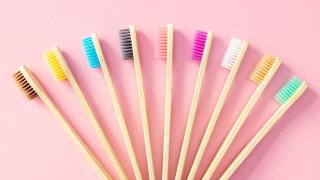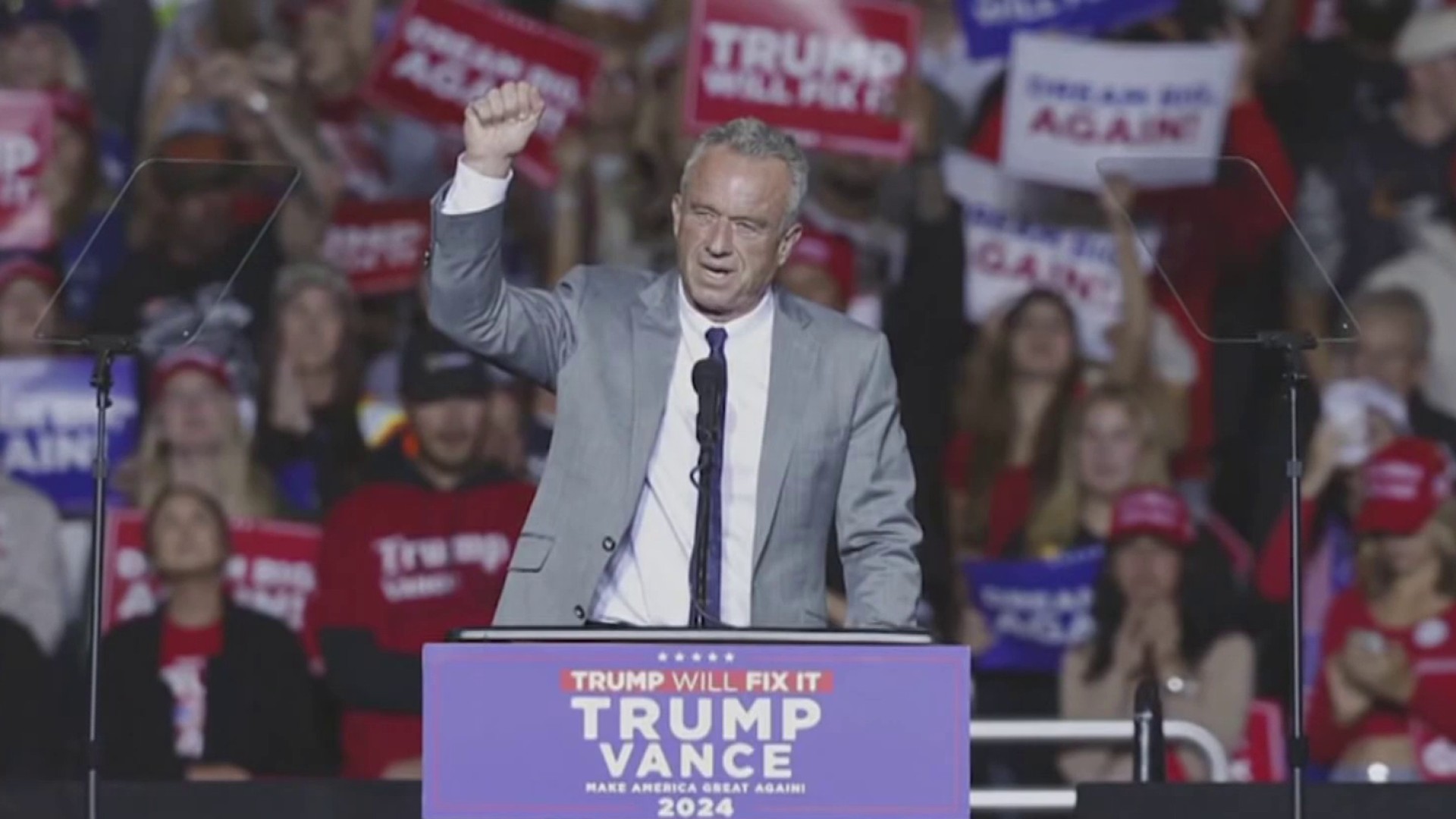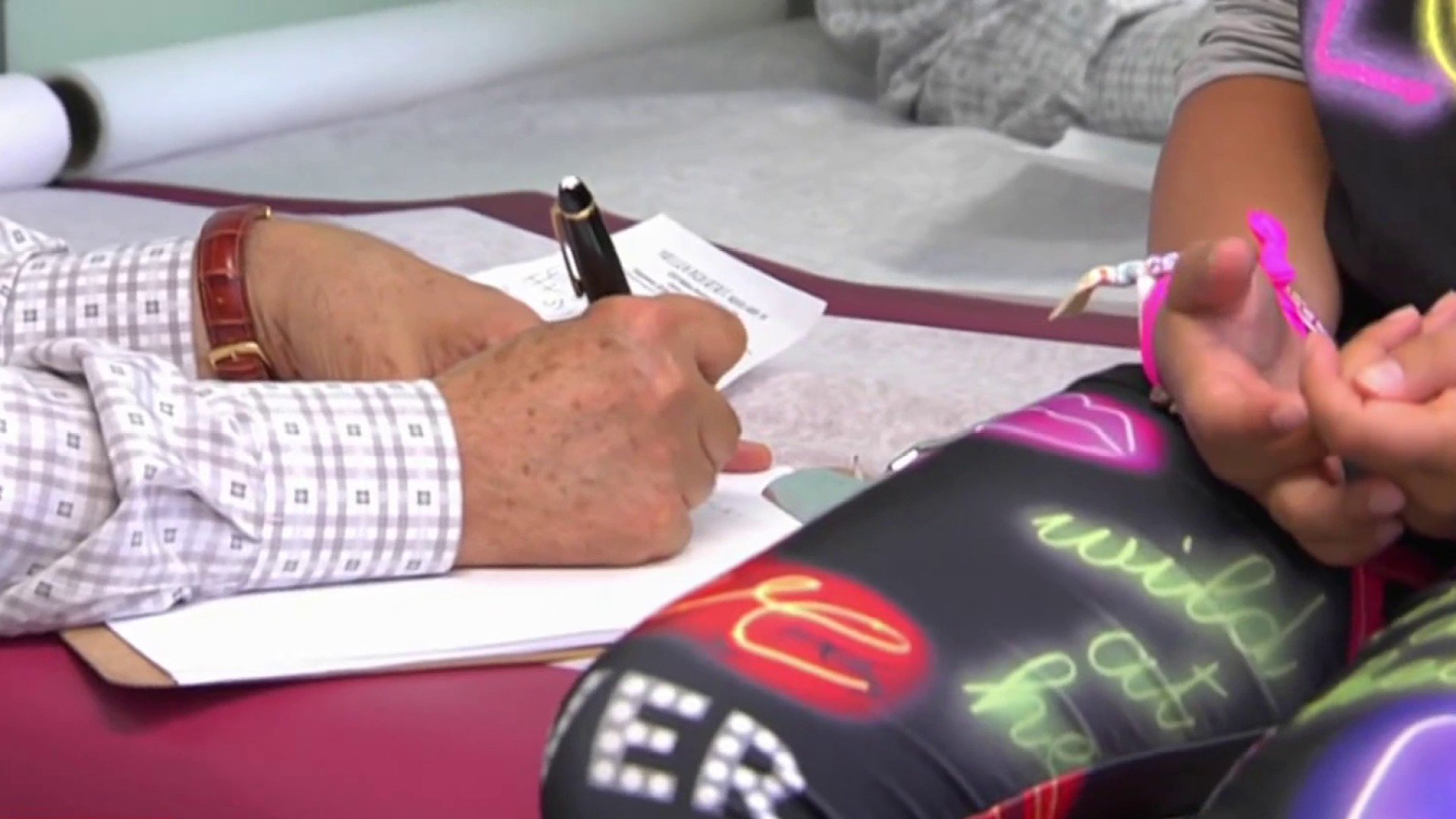
Practicing oral hygiene like a dentist also means knowing when not to brush your teeth.
A London-based dentist has sparked an online debate after advising against three situations that many regard as good times to brush your teeth.
The video, posted by Dr. Shaadi Manouchehri, clinical director at Smart Dental and Aesthetics Clinic in the U.K., has garnered more than 12 million views on TikTok, leaving many incredulous that they were brushing wrong all this time.
She recommends not brushing your teeth directly after vomiting and eating breakfast or sweets.
We've got the news you need to know to start your day. Sign up for the First & 4Most morning newsletter — delivered to your inbox daily. Sign up here.
“I’ve ALWAYS brushed after vomiting,” one shocked TikTok user exclaimed.
“So then why have we ALWAYS been taught to brush out teeth after meals?” one quipped.
“Ah, yes, the three times I want to brush my teeth more than any other time,” another lamented.
So, do other dentists agree with Manouchehri's assessment? TODAY.com spoke with a few experts to find out.
Acid and brushing your teeth
The argument against not brushing your teeth in certain scenarios is "all about the acid,” Dr. Tien Jiang, assistant professor of oral health policy and epidemiology at Harvard School of Dental Medicine, tells TODAY.com via email.
Many people think cavities come from sugar, but it’s not the direct cause, she says. It's acid, which can remove the minerals, a process called demineralization, from the tooth's outer layer, also known as enamel.
“Acid can come from many places — vomit ... carbonated drinks, sucking on lemons, etc.,” Jiang explains.
The bacteria that break down the food you eat also release acid. As a result, “it’s natural for the pH of our mouths to drop when we eat, while the bacteria get to work to break down our food.”
Brushing while there’s too much acid in the mouth can damage your teeth.
“People should never brush when your mouth has a very low pH because you don’t want to then scrub that acid into your teeth,” Dr. Beth Caunitz, a dentist in New York City, New York, tells TODAY.com.
Should you brush directly after vomiting?
Many of the experts TODAY.com interviewed recommend waiting to brush your teeth after vomiting.
“Vomit contains stomach acids, which can soften and dissolve the outer layer of your teeth,” says Dr. Diana Nguyen, chief of clinical general dentistry at UCSF School of Dentistry.
“If you brush after vomiting, you’d actually be spreading the acid around to more of your enamel and risk stripping layers of enamel off your teeth with your toothbrush, which can cause the teeth to appear more yellow over time.”
One easy hack that she recommends is a simple homemade rinse.
Add a teaspoon of baking soda to a cup of water, swish it around in the mouth and then spit it out, she says. “This can help buffer the acids and protect your teeth.”
Rinsing after vomiting also reduces how long your teeth will be exposed to acid. A fluoride mouthwash in particular can help re-mineralize the enamel, and then you can brush your teeth sooner, adds Dr. Carlos González-Cabezas, professor and associate dean for academic affairs at the University of Michigan School of Dentistry.
Should you brush after you eat breakfast?
"When we eat, the mouth becomes acidic, as the bacteria in our mouth also feed on the food we eat and metabolize this to an acid, therefore dropping the pH of the mouth,” Manouchehri tells TODAY.com.
“If we brush straight away, we are rubbing this acid onto the teeth, which ... can be damaged,” she says.
Our saliva naturally buffers this acidic state over approximately 30 to 60 minutes, so she recommends waiting at least that long to brush.
Jiang agrees: “Waiting 30 (minutes) after eating anything (not just breakfast or sweets) to brush is a normal instruction.”
“In these conditions, tooth enamel is softened, so you could actually damage your teeth by brushing them right after eating,” she explains. “In the meantime, you can drink water and rinse with mouthwash to help clear food particles away from your teeth and gums.”
However, Gonzalez-Cabezas says the impact on the enamel of brushing right after eating is likely minimal. The most important thing is that you brush your teeth at some point every morning.
Should you brush immediately after eating sweets?
Some experts recommend waiting at least an hour after eating sweets to brush your teeth to give your mouth time to wash away the acid, according Mayo Clinic.
Anything with sugar can increase the amount of acid in your mouth, but examples include soft drinks, sports drinks, sour candies, and citrus juices and fruits.
People should also avoid brushing right after having carbonated beverages, as they're acidic, Caunitz warns.
Instead of brushing your teeth after eating sweets, Caunitz recommends drinking a glass of water because the water will rinse off all the unwanted acid.
However, Gonzalez-Cabezas says that brushing your teeth after eating sweets helps remove potentially harmful sugars that can damage the enamel sooner. Thanks to the toothpaste, brushing right after will also provide fluoride to your teeth, which promotes remineralization.
For those who enjoy sweets or snacking on sugary foods, Nguyen recommends the following:
- Drinking plenty of water
- Using a toothpaste that contains a remineralizing agent like fluoride
- Visiting your dentist regularly to monitor for tooth decay and other dental conditions
This story first appeared on TODAY.com. More from TODAY:



